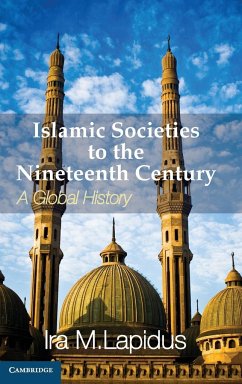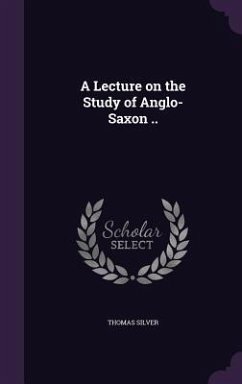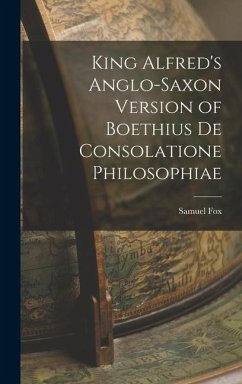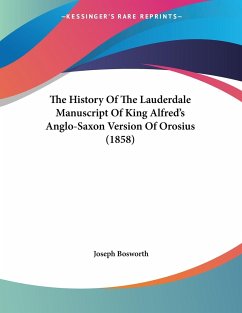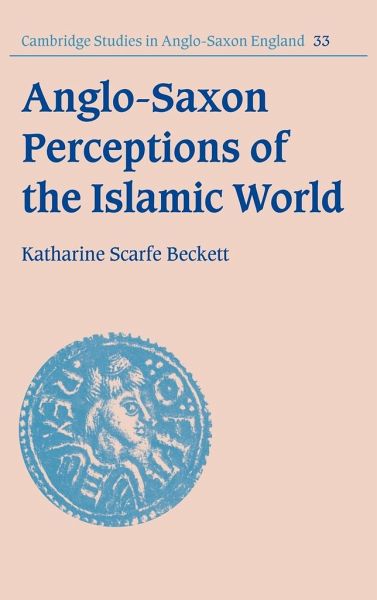
Anglo-Saxon Perceptions of the Islamic World
Versandkostenfrei!
Versandfertig in 1-2 Wochen
109,99 €
inkl. MwSt.
Weitere Ausgaben:

PAYBACK Punkte
55 °P sammeln!
Hostility towards Islamic peoples was based on Christian exegesis rather than actual experience.In this book, Scarfe Beckett is concerned with representations of the Islamic world prevalent in Anglo-Saxon England. Using a wide variety of literary, historical and archaeological evidence, she argues that the first perceptions of Arabs, Ismaelites and Saracens which derived from Christian exegesis preconditioned western expressions of hostility and superiority towards peoples of the Islamic world, and that these received ideas prevailed even as material contacts increased between England and Musl...
Hostility towards Islamic peoples was based on Christian exegesis rather than actual experience.
In this book, Scarfe Beckett is concerned with representations of the Islamic world prevalent in Anglo-Saxon England. Using a wide variety of literary, historical and archaeological evidence, she argues that the first perceptions of Arabs, Ismaelites and Saracens which derived from Christian exegesis preconditioned western expressions of hostility and superiority towards peoples of the Islamic world, and that these received ideas prevailed even as material contacts increased between England and Muslim territory. Medieval texts invariably represented Muslim Arabs as Saracens and Ismaelites (or Hagarenes), described by Jerome as biblical enemies of the Christian world three centuries before Muhammad's lifetime. Two early ideas in particular - that Saracens worshipped Venus and dissembled their own identity - continued into the early modern period. This finding has interesting implications for earlier theses by Edward Said and Norman Daniel concerning the history of English perceptions of Islam.
Table of content:
1. Introduction; 2. Islam during the Anglo-Saxon period; 3. Anglo-Saxon contacts with Islam; 4. Arabs and Arabia in Latin; 5. Ismaelites and Saracens in Latin; 6. Arabs, Ismaelites and Saracens in early Anglo-Latin; 7. Pseudo-Methodius and the sons of Ismael; 8. Arabs, Ismaelites and Saracens in Old English; 9. Persisting theories about Saracens in post-Conquest England; 10. Conclusions; Bibliography; Index.
In this book, Scarfe Beckett is concerned with representations of the Islamic world prevalent in Anglo-Saxon England. Using a wide variety of literary, historical and archaeological evidence, she argues that the first perceptions of Arabs, Ismaelites and Saracens which derived from Christian exegesis preconditioned western expressions of hostility and superiority towards peoples of the Islamic world, and that these received ideas prevailed even as material contacts increased between England and Muslim territory. Medieval texts invariably represented Muslim Arabs as Saracens and Ismaelites (or Hagarenes), described by Jerome as biblical enemies of the Christian world three centuries before Muhammad's lifetime. Two early ideas in particular - that Saracens worshipped Venus and dissembled their own identity - continued into the early modern period. This finding has interesting implications for earlier theses by Edward Said and Norman Daniel concerning the history of English perceptions of Islam.
Table of content:
1. Introduction; 2. Islam during the Anglo-Saxon period; 3. Anglo-Saxon contacts with Islam; 4. Arabs and Arabia in Latin; 5. Ismaelites and Saracens in Latin; 6. Arabs, Ismaelites and Saracens in early Anglo-Latin; 7. Pseudo-Methodius and the sons of Ismael; 8. Arabs, Ismaelites and Saracens in Old English; 9. Persisting theories about Saracens in post-Conquest England; 10. Conclusions; Bibliography; Index.







